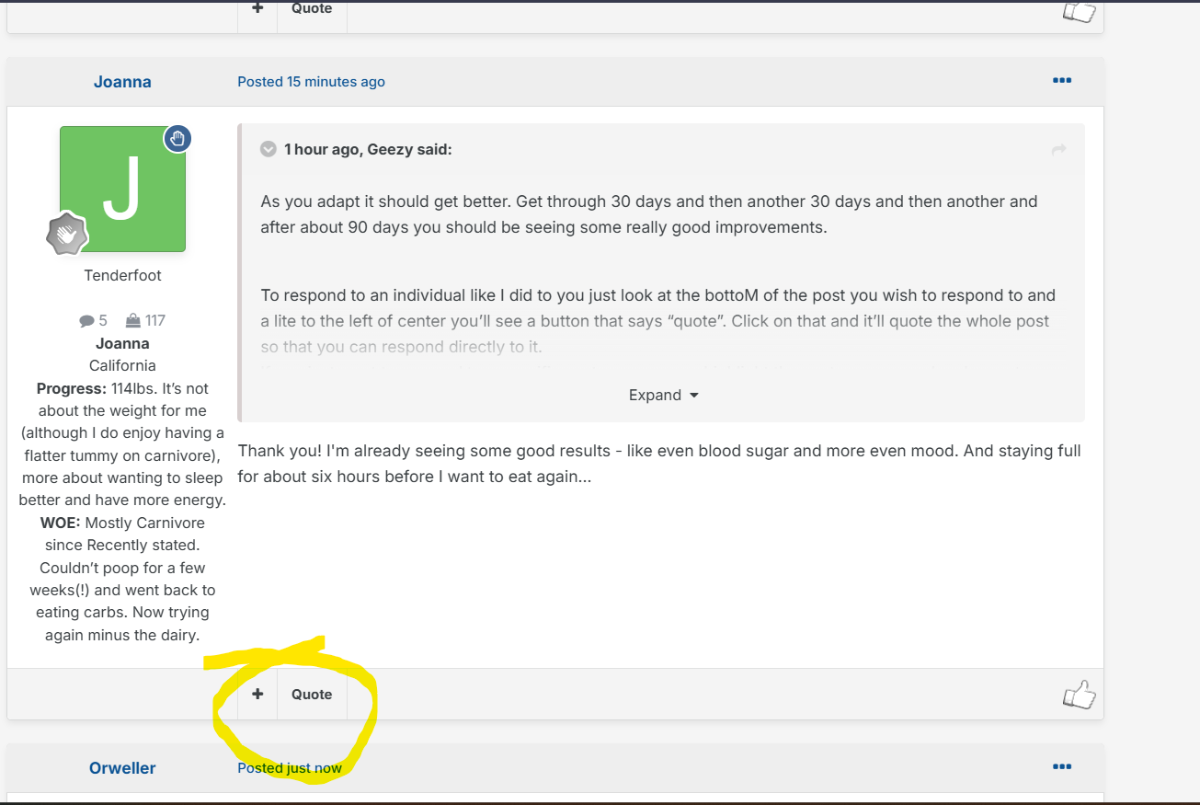Welcome to our Carnivore / Ketovore / Keto Online Community!
Welcome to Carnivore Talk! An online community of people who have discovered the benefits of an carnviore-centric ketogenic diet with the goal of losing weight, optimizing their health, and supporting and encouraging one another. We warmly welcome you! [Read More]
- Replies 6
- Views 1.1k
- Created
- Last Reply
Popular Days
Most Popular Posts
-
I’m not concerned with the LDL as it’s normal to see higher LDL as a carnivore because we are getting our energy from fat so it only stands to reason that if that is our only source of energy then the
-
Thank you so much for your thorough and thoughtful responses! I really appreciate the time you took to explain everything in such detail. The higher LDL levels don’t concern me as much anymore, especi
-
Nick Norwitz just posted about a paper that was published showing that people on a ketogenic diet did not have more calcification than others. Just check out his most recent YouTube channel. You most







Hi there! My name is Justin,
I’ve noticed a lot of discussions around high cholesterol levels, but I’m still a bit unsure whether my latest blood work results are something to be concerned about.
I’m 34 years old and have been following a low-carb/keto diet for about 10 years. My blood work has generally been fine, with cholesterol a little on the higher side, which I’ve assumed is normal given my diet. In January, I switched to a carnivore diet to help break a weight-loss plateau. I’m also quite active, weightlifting 2-3 times a week and aiming for 10-15k steps a day. My weightless journey is finally going well! around 10 kilo in 3 months and I'm almost at my ideal body weight.
My most recent blood work (from around 2023) while on keto was generally okay. I’ll share those results here, but I’m more concerned about my new blood work after three months on carnivore:
(mmo per liter)
Glucose 5.3
Cholesterol 5.5
LDL 3.5
HDL 1.4
Triglyceride 1.2
recent result:
Glucose 4.6
Cholesterol 10.9
LDL 8,2
HDL 1.3
Triglyceride 1.8
The LDL even felt outside the chart they provided with the test results (goes to 8)
I primarily eat eggs, grass-fed butter, -beef, -steaks, and bacon. I’m starting to feel concerned about these results, especially since I’ve come across conflicting information on the subject. If anyone has any insights and would be willing to take a look at my results, I would really appreciate it!